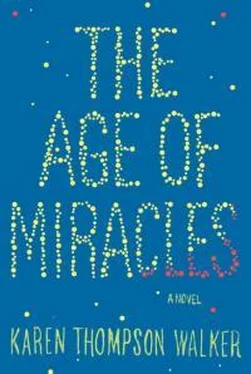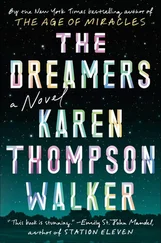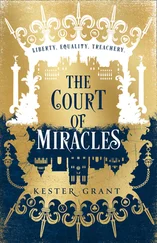Sylvia cleared her throat, and we were back in the lesson. “ ‘Für Elise,’ ” she said, resetting the metronome. “One more time through.”
I’d played only the first few notes when the telephone rang in the kitchen. Sylvia ignored the phone, but it rang again. The ringing seemed to aggravate the finches, who screeched and called out from their cage. Sylvia stood to answer, but the machine caught the call and then projected through the house the first scratch of a man’s voice.
Sylvia picked up the phone and shut off the machine. She seemed to know who it would be.
“I’m teaching,” she said, as if annoyed. “Remember?”
But she looked pleased and embarrassed, her face the face of a woman much younger. Sylvia was about forty at the time.
I’d never seen her with a man. I imagined a dusty outdoorsman with a ponytail and beard, calling on a cell phone from a pickup or a van.
Sylvia laid the phone on her shoulder and motioned to Seth and me that she would be right back. Then she went upstairs, the phone pressed to her ear, the hem of her white linen dress brushing the backs of her legs as she moved.
Seth and I were alone in the living room. Neither of us moved. He rearranged his music books on his lap, letting the pages slide against one another. I stayed on the piano bench and studied the keys, too nervous to look in his direction.
Eventually, Seth fished his cell phone from his pocket and began to play a game with his thumbs. Tinny music radiated out from the phone like the sounds of a distant carnival. I wondered if this was how he passed his time in hospitals while doctors operated on his mother or injected toxic chemicals into her blood.
I pulled the rubber band from my hair and remade my ponytail, smoothing out the tangles. I was breathing fast, but I tried to conceal it.
In the distance outside, I could hear the shouts of younger children. A cherry ball was smacking the pavement. Through the window, I thought I saw something dark fall from the sky.
One of Sylvia’s finches let out a loud screech. Seth turned toward the cage. He studied the birds for a few seconds. The music from his game played on.
Finally, I spoke: “Do they look okay?”
Seth shrugged his shoulders and said nothing.
I slid off the piano bench to see for myself.
Inside the cage, a bowl of chopped apples sat untouched, the fruit flesh browning in the air. Two mealworms, which I knew from Sylvia were also part of the finch diet, wiggled freely in the bowl.
“They’re not eating,” I said.
“Maybe she just fed them,” said Seth.
“Or maybe it’s the sickness.”
Up close, Seth smelled like detergent, but his T-shirt was badly wrinkled—as if, in his home, the folding of laundry had become a lost art, an outmoded custom turned obsolete by suffering.
I heard the creak of Sylvia’s footsteps moving back and forth upstairs. The metronome continued to click, segmenting time in its ancient way.
Adagio was sitting like a miniature hen on the newspaper that lined the bottom of the cage.
“That one looks really bad,” I said.
Seth tapped on the bars with one finger. “Hey, little guy,” he said. “Over here. Hello?”
The tapping upset the healthier bird, whose head darted toward the noise, but Adagio did not react.
Seth glanced behind his shoulder, checking for Sylvia. Then he unlatched the cage door and swung it open. Slowly, he reached inside, touching Adagio lightly on the back. The bird wobbled like an egg under his finger, and Seth pulled his hand away.
“Shit,” he said. “It’s dead.”
“Are you sure?” I said.
“Definitely.”
“It is the sickness,” I said.
“Maybe,” he said. “Or maybe not. Maybe it just got sick with something normal and died.”
We heard the upstairs bedroom door snap open. Seth shut the cage door. We looked at each other but said nothing. We made a sudden silent agreement.
The other bird remained at the top of the cage, uselessly flapping his wings. I felt sorry for that bird, all alone in his world.
We heard Sylvia’s feet on the stairs, her hand on the banister, the cordless phone landing in its cradle on the kitchen counter.
“What’s wrong?” she said when she appeared, unclipping her hair and then tying it up again.
“Nothing,” said Seth. He sat down in the old leather chair, his long arms dangling on the sides.
“We were just looking at your birds,” I said.
“Stop worrying about them,” she said. She waved her hand as if shooing an insect. “They’re fine.”
Sylvia apologized for cutting my lesson short, but she thought she’d better start Seth’s.
As I packed up my things, I tried to catch Seth’s eyes, but he wouldn’t look in my direction. I gathered up my books and left the house, not knowing then that I would cross that threshold only a few more times in my life.
I was getting used to the sight of lifeless things. I’d been learning, since the slowing, about the qualities of the dead, the way a bird’s body deflates after a few days, the way it drains, growing flatter and flatter until only the feathers and the feet remain.
Outside, the sky was a pure, flinty blue, streaked by two delicate clouds. In science, we’d begun to study the atmosphere, and I’d memorized the names of all the different types of clouds. These two were cirrus, the highest, finest kind.
Higher still than the clouds, two hundred miles above my head, I knew that six astronauts—four Americans and two Russians—were stranded at the space station. The shuttle launch that had been planned to retrieve them had been postponed indefinitely. The complex calculation, the giant cosmic slingshot, that for decades had brought our astronauts back and forth from space, was judged, for the time being, too dangerous to attempt. Whenever I looked at the sky during that time, I thought of them up there, stranded so far from earth.
As I crossed the street, an ocean breeze washed through the eucalyptus and the pines. A single sparrow sailed across the sky. I picked a dandelion from the yard and shook it in the wind while our cat Tony slept, belly up, on the porch. The sidewalks shimmered in the sun. Somewhere a dog was barking. I wondered what Hanna was doing in Utah right then. This was one of the last real afternoons.
There had always been regions of the earth where the sun could not be trusted, where the days were never measured by the rising and setting of our star. At certain remote coordinates, the sun had always set in December and then failed to rise all season. There, every summer had always been one continuous loop of daylight, the sun relentless in the June night sky.
These were difficult places. Trees refused to grow. They were the ancient fishing settlements of northern Scandinavia, the icy slopes of Siberia, the Inuit villages of Canada and Alaska. For the inhabitants of these places, night and day had always been abstract. Morning did not necessarily bring with it the light. And not all nights were dark.
Those of us living in the lower latitudes were about to experience a lifestyle strange to us but long familiar in the land of the midnight sun.
* * *
The announcement was made at night, fourteen days after the start of the slowing. Broadcasts were interrupted. Newscasters broke in with a special message. I remember the blare of the trumpets—the network’s emergency intro music—slicing through the crowd noise of Game 7 of the World Series.
“Jesus,” sighed my mother. “What now?”
We’d been watching the game over dinner, plates of Bellisario’s cheese pizza steaming on our knees. It had been a good day: that afternoon I had finally heard from Hanna—she’d written me a cheerful postcard with a picture of the desert on the back. My mother had relaxed a little. My father was drinking a beer. A quart of cookies and cream was waiting in the freezer. A stranger passing our window that night could have detected our moods from the sounds: the clean crack of bat striking ball and the synchronized cheers of my parents. We were happy.
Читать дальше












